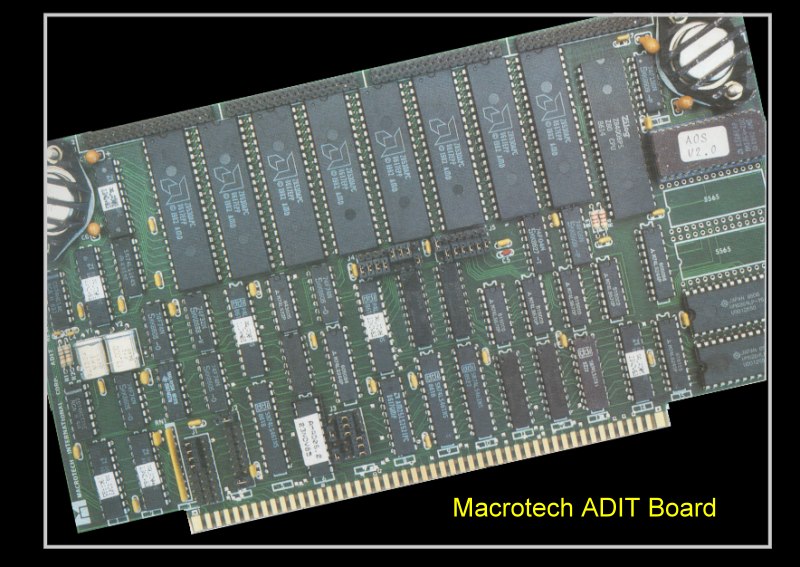

| Home | S-100 Boards | History | New Boards | Software | Boards For Sale |
| Forum | Other Web Sites | News | Index |

A non-intelligent I/O board requires the host CPU to spend an inordinate amount of time processing I/O on a character-by-character basis. In small systems with a minimal number of users, this is not a problem. However as the number of users and peripherals increased, especially in an I/O-intensive situation, the host CPU spends so much time on I/O that response time became unacceptably slow even for the 16 bit CPU of the time. When using non-intelligent I/O, every character to be transferred interrupted the host, requiring the CPU's valuable time to save its current state and then process the character. The energies of the CPU were constantly diverted from application processing to handling this steady stream I/O.
The ADIT solved this I/O bottleneck with a 6-MHz Z80 CPU on board and full DMA capability. It had its own on-board "ADIT Operating System" (AOS) and static memory. These features make it possible for the host CPU to off-load a substantial amount of I/O processing onto the ADIT. The host CPU was not interrupted until the ADIT is finished with any assigned I/O tasks. This allowed time-consuming I/O processing to take place in the background, without bogging down the host CPU.
This page was last modified on 05/11/2020